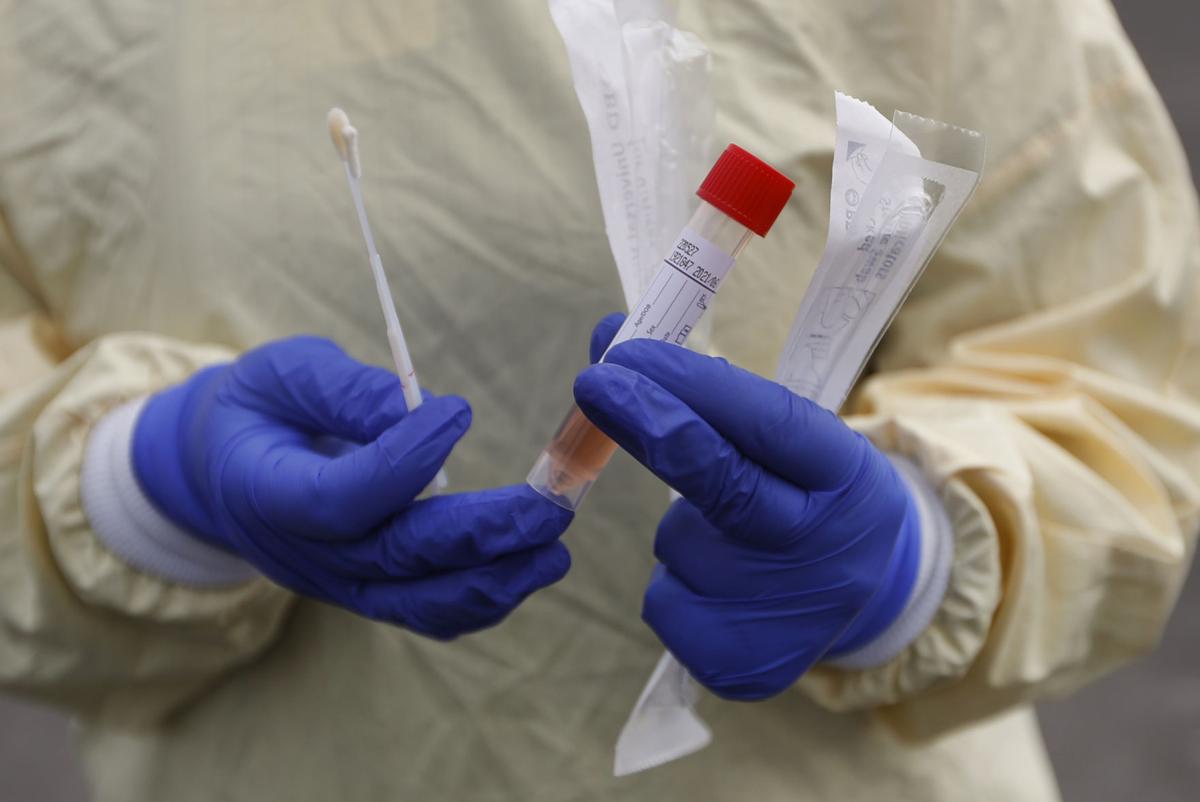
A nurse holds swabs and test tube to test people for COVID-19 at a drive through station set up in the parking lot of the Beaumont Hospital in Royal Oak, Mich.
University of Arizona researchers trying to save COVID-19 patients have made what they believe is a critical discovery: an enzyme that typically defends the body is instead shredding cell membranes in organs of people with severe disease.
In some cases, this may cause death or could contribute to “long-COVID” cases, which refers to those who have health issues that continue long after the infection peaked.
The enzyme, called sPLA2-IIA, has similarities to an enzyme found in rattlesnake venom and is typically found in small amounts in healthy people, where its role is to defend against bacterial and viral infections.
They found that one of the key factors in determining if a person was going to die of the virus, which has killed over 630,000 people in the United States and more than 4 million worldwide, is the circulation of this enzyme in high amounts.
“In other words, this enzyme is trying to kill the virus but at a certain point it is released in such high amounts that things head in a really bad direction, destroying the patient’s cell membranes and thereby contributing to multiple organ failure and death,” said Floyd (Ski) Chilton, director of the UA’s Precision Nutrition and Wellness Initiative in the College of Agriculture and Life Sciences.
The enzyme, like rattlesnake venom coursing through the body, “has the capacity to bind to receptors at neuromuscular junctions and potentially disable the function of these muscles,” said Chilton, a professor with a Ph.D. in biochemistry.